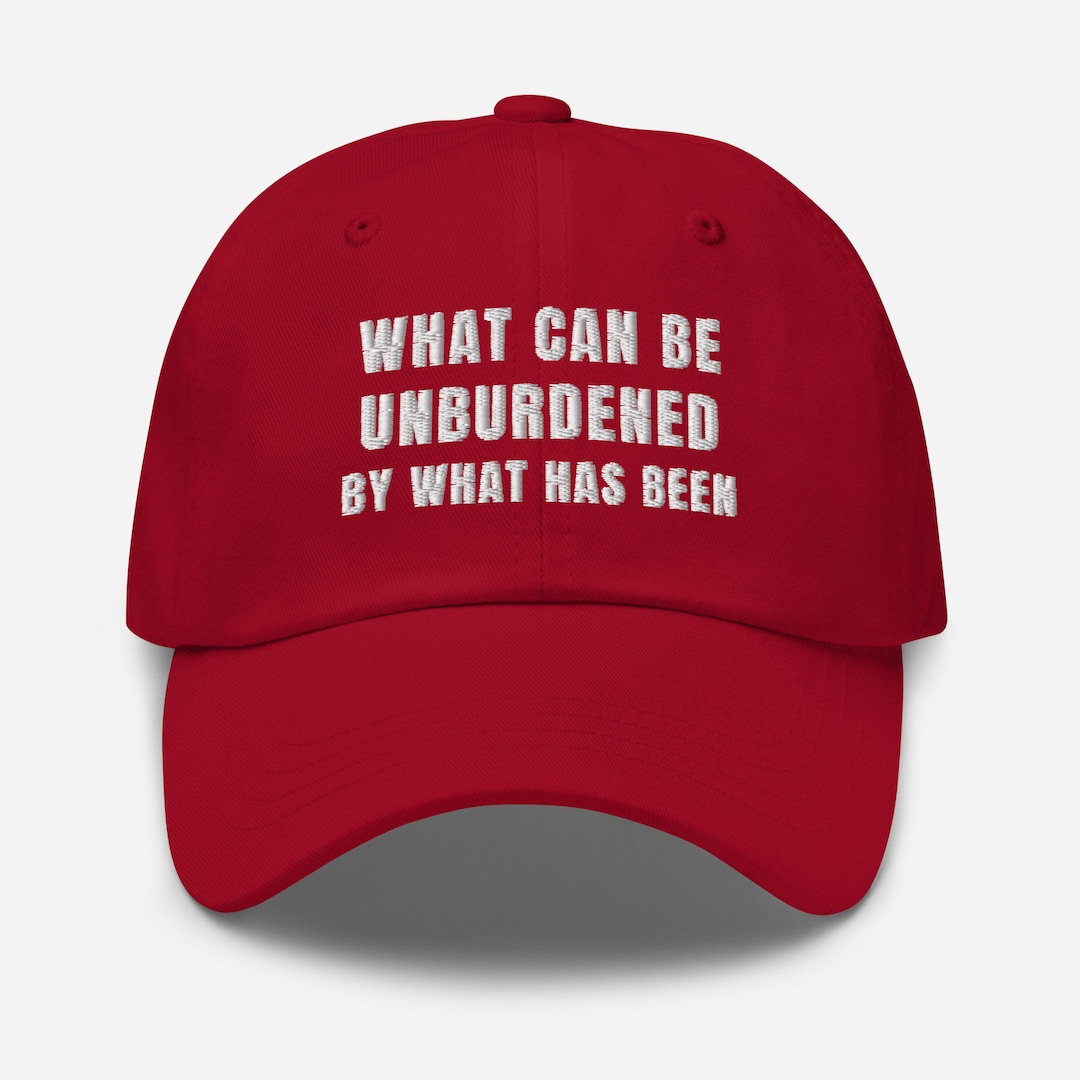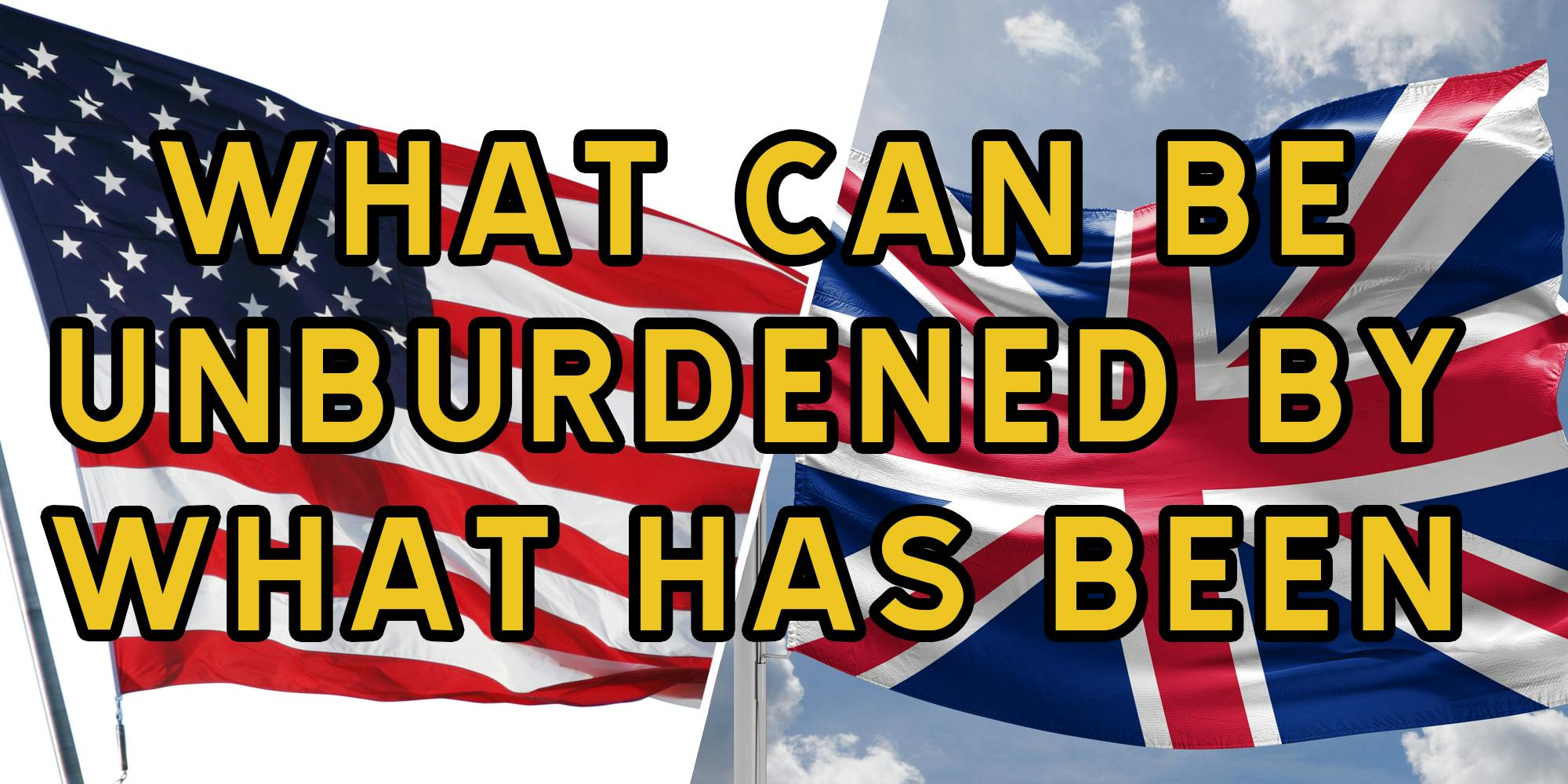Can a simple phrase encapsulate an entire political philosophy? Vice President Kamala Harris's repeated invocation of "what can be, unburdened by what has been" has sparked a firestorm of debate, scrutiny, and ultimately, viral memeification, forcing a deeper exploration of its origins, implications, and the cultural currents it taps into.
The phrase, seemingly straightforward in its promise of progress and optimism, has become a lightning rod, drawing both ardent support and scathing criticism. Detractors suggest it hints at a radical agenda aimed at dismantling the very foundations of Western civilization, while supporters view it as a clarion call for transformative change. To understand its power, one must delve into the context of its usage, its perceived ideological underpinnings, and the ways it has been embraced and weaponized in the ever-evolving landscape of American politics. This exploration is crucial as the nation barrels towards a pivotal election year, where the echoes of this seemingly simple phrase may reverberate louder than ever.
| Attribute | Details |
|---|---|
| Full Name | Kamala Devi Harris |
| Born | October 20, 1964 (age 59) in Oakland, California, U.S. |
| Political Party | Democratic Party |
| Spouse | Douglas Emhoff (m. 2014) |
| Children | 2 stepchildren |
| Alma Mater |
|
| Profession | Politician, Lawyer |
| Political Career Highlights |
|
| Notable Quotes |
|
| Website Reference | White House - Vice President Kamala Harris |
The phrase "what can be, unburdened by what has been" initially appears to be a straightforward statement of optimism. It suggests a future unconstrained by the limitations of the past, a call to look forward with hope and a willingness to embrace change. During her 2024 campaign, the vice president frequently employed this phrase in speeches and social media posts, solidifying its place in her public persona.
- Katie Morgan Free Videos Bio More
- French Pole Vaulter Anthony Ammiratis Viral Olympics Moment Details
However, the simplicity of the phrase belies a potentially deeper ideological resonance. Critics have argued that "unburdened by what has been" hints at a desire to dismantle existing social, political, and cultural norms. This interpretation views the past not as a source of wisdom or lessons learned but as an impediment to progress, a set of constraints to be discarded in the pursuit of a more equitable future. This perspective, some argue, aligns with certain tenets of Marxist thought, which advocates for a radical transformation of society to address perceived inequalities.
The use of this phrase has also ignited a vigorous debate about its origins. Despite claims circulating online, there is no credible evidence that Kamala Harris borrowed the phrase from Karl Marx or any other historical figure. Research into Marx's writings and personal correspondence has yielded no trace of the specific wording or its sentiment. Furthermore, the vice president has not credited Marx or any other individual with originating the phrase.
The phrases popularity quickly morphed into a meme, gaining traction across various social media platforms. A supercut of Harris repeating the quote, shared by the Republican National Committee in April 2023, went viral, ironically amplifying its visibility and transforming it into a recurring punchline. The phrase has been remixed and repurposed in countless ways, from humorous commentary to pointed critiques of the vice president's policies and perceived political leanings.
- Sydney Sweeney News Career Latest Updates 2024 Beyond
- Hergie Bacyadan Transgender Boxer At Paris Olympics Discover Her Story
This phenomenon underscores the power of political rhetoric in shaping public perception. The phrase, initially intended to convey a message of hope, has been transformed into a symbol of partisan division. Its simplicity and adaptability have made it an ideal tool for both supporters and detractors, highlighting the often-unpredictable ways that language can be utilized in the digital age.
The contrast between "what can be, unburdened by what has been" and other statements made by Harris further complicates the interpretation of her political philosophy. Another notable quote, "you exist in the context of all in which you live and what came before you," presents a different perspective, emphasizing the importance of history and lived experience. This quote suggests a more nuanced understanding of progress, acknowledging the influence of the past while simultaneously striving for positive change.
The phrase's rise to prominence coincides with a period of intense political polarization in the United States. The upcoming 2024 election, with its high stakes and potential for significant shifts in the balance of power, has only amplified the scrutiny of Kamala Harris's words and actions. Some commentators have interpreted the "unburdened" message as a rejection of traditional values and a call for a complete societal overhaul, while others see it as a rallying cry for progressive reform.
The online world has further fueled the debate. Platforms like X (formerly Twitter) have become battlegrounds for conflicting interpretations of the phrase. One user posted, Kamala gets flustered, defaults to her favorite cringe, recycled line: 'we can see what is possible, unburdened by what has been!'" This kind of remark highlights the phrase's increasing association with a sense of performative politics, criticized by some for lacking substance.
The phrase, "what can be, unburdened by what has been," is now deeply ingrained in the political lexicon. The meaning of the word "unburdened" in this context is clear: it means to be free of weight or load, to be unencumbered by the past. It can also be a symbol of division. This phrase has been adopted by Harris's supporters as a call for change and progress, while it has been used by critics to suggest a lack of appreciation for historical context.
The adoption of the phrase by Harriss critics is part of a larger strategy to undermine her credibility and attack her political ideology. By framing the phrase as a symbol of radicalism, her opponents hope to damage her image and erode support among moderate voters. It also plays into broader anxieties about the direction of American society, tapping into fears of cultural decline and the erosion of traditional values.
The use of the term "unburdened" is not a new phenomenon in political discourse. Throughout history, political leaders have invoked similar concepts to rally support for change. The core idea is to convince people to leave behind the baggage of the past and embrace a new vision for the future. However, the specific language and the way it is delivered can dramatically influence its impact.
The controversy surrounding Harris's phrase underscores the complexities of contemporary political communication. In an era of instant information and social media saturation, a simple statement can quickly become a symbol, subject to multiple interpretations and manipulated for political gain. The fate of "what can be, unburdened by what has been" in the months leading up to the election will be a fascinating test of the power of rhetoric and the enduring relevance of history in shaping our shared future.
The phrase's journey from campaign slogan to meme reflects a broader trend in contemporary politics: the rise of performative rhetoric and the power of symbolism. The rapid dissemination of the phrase through social media has amplified both its appeal and its vulnerabilities. It has become a potent tool for shaping public opinion and a reminder of the power of language in the political arena.
The political landscape is always evolving. In such a dynamic environment, phrases like "what can be, unburdened by what has been" have the capacity to profoundly influence public perception. As the country heads into the 2024 election, it remains to be seen how this phrase will be used to shape the narrative and influence the outcome of the race. Ultimately, the ongoing debate surrounding the vice president's signature phrase will be shaped by the choices of voters and the voices of the media.
- Kirby Howellbaptiste From Tv Star To Voice Acting Success
- Nico Collins Injury Updates Will He Return For Texans


